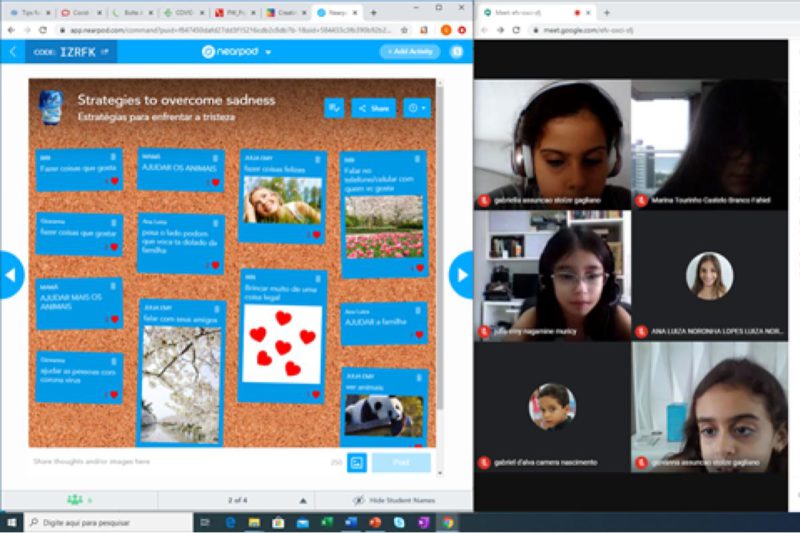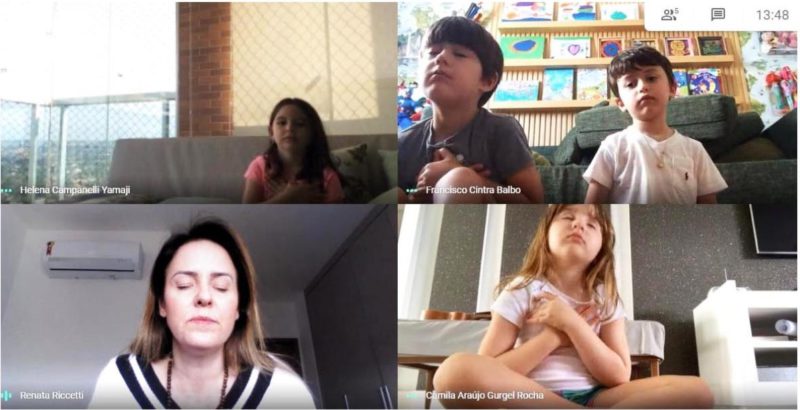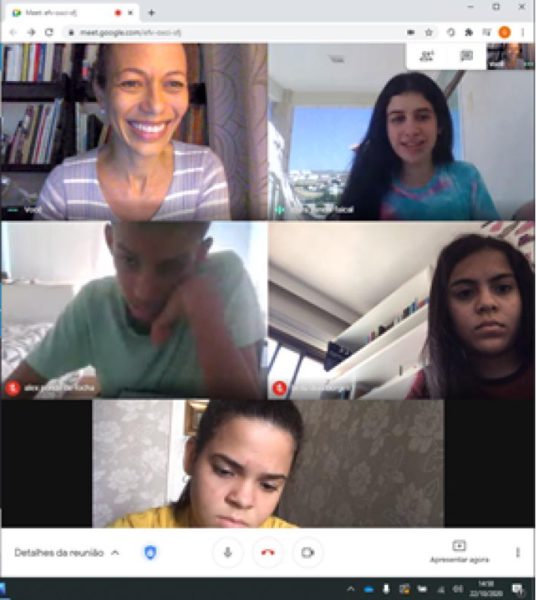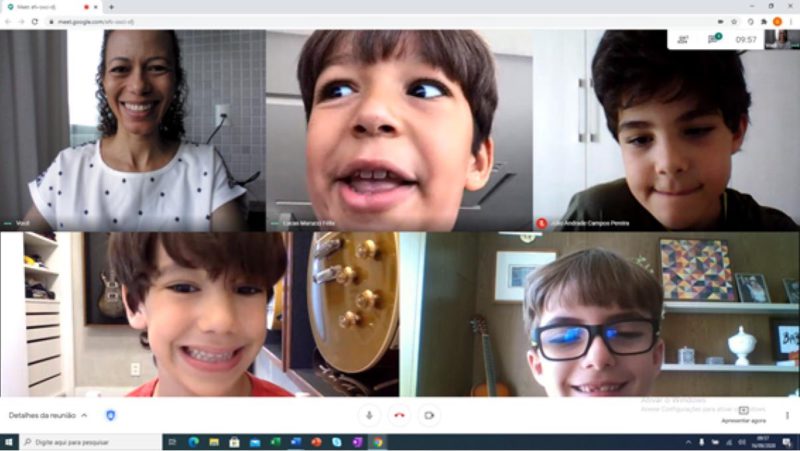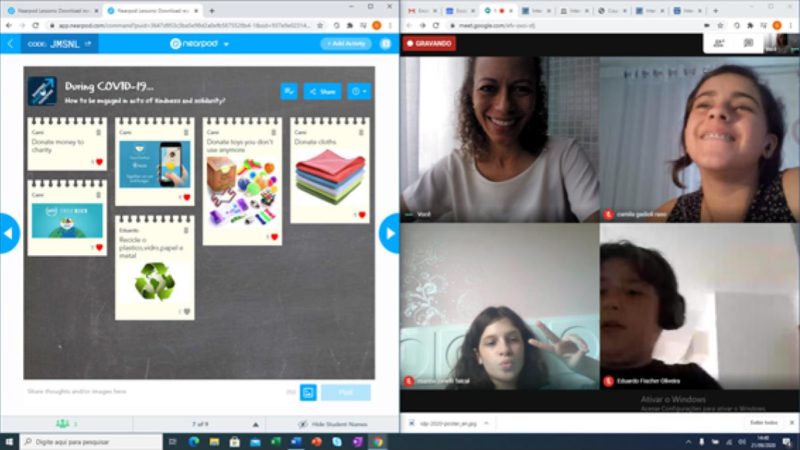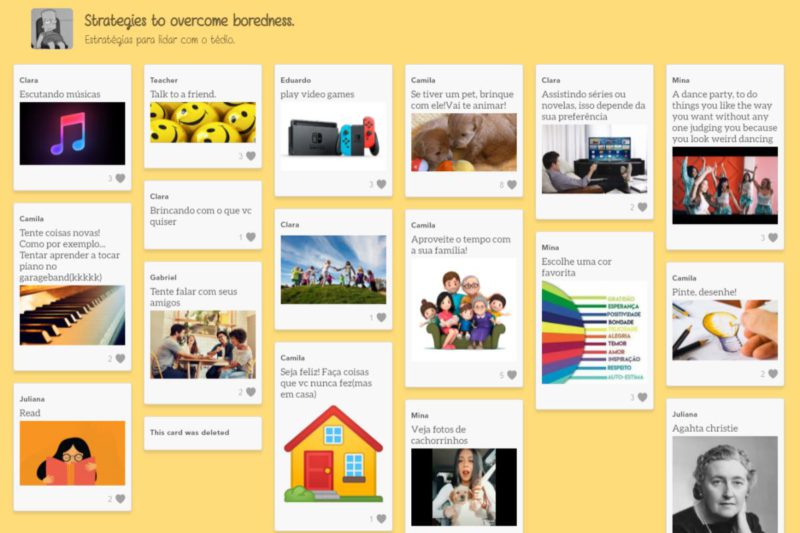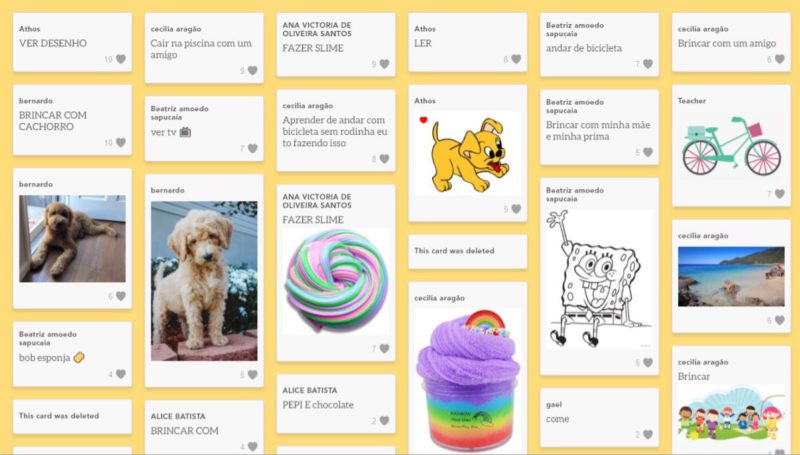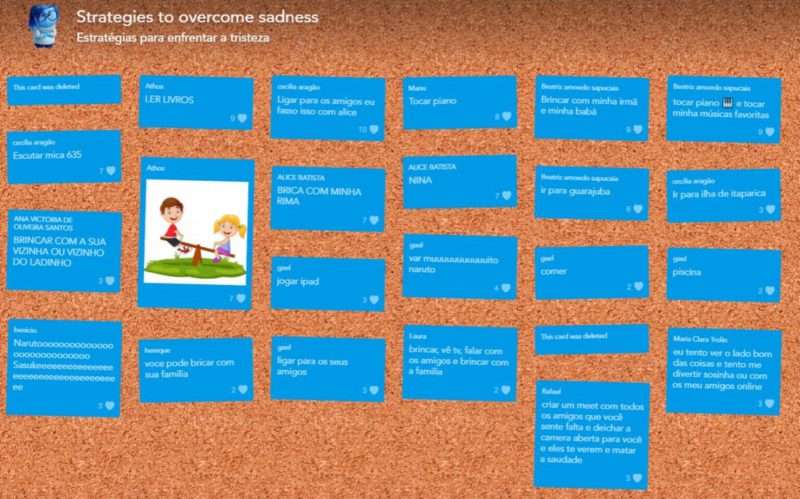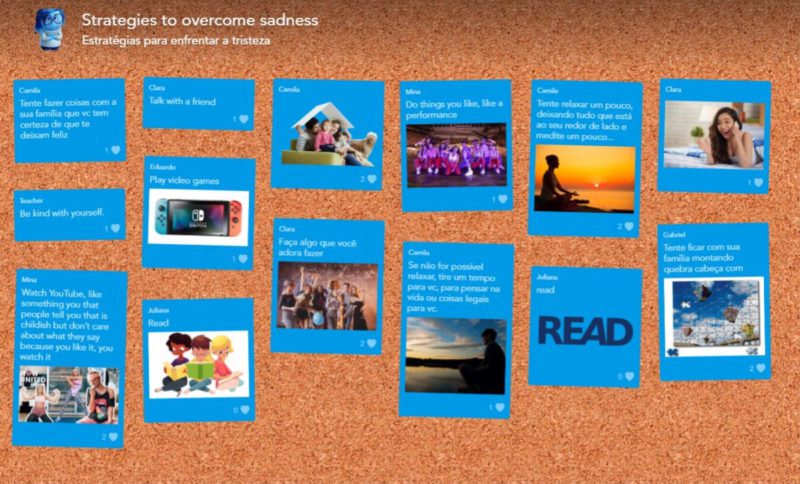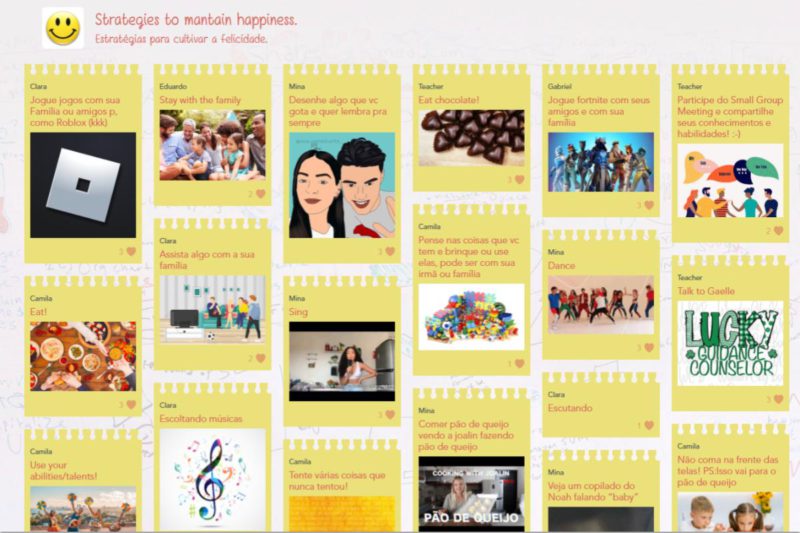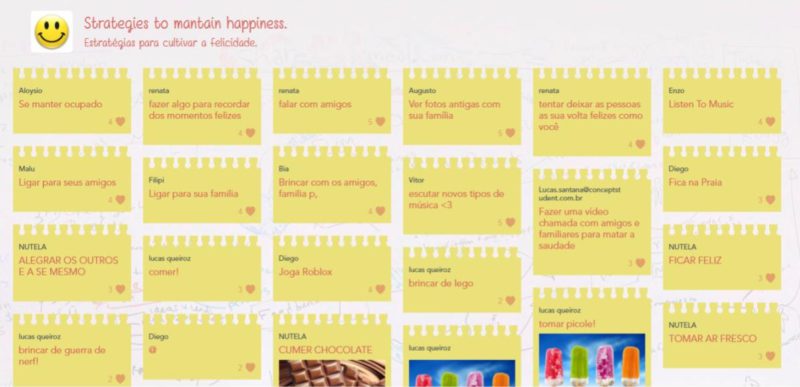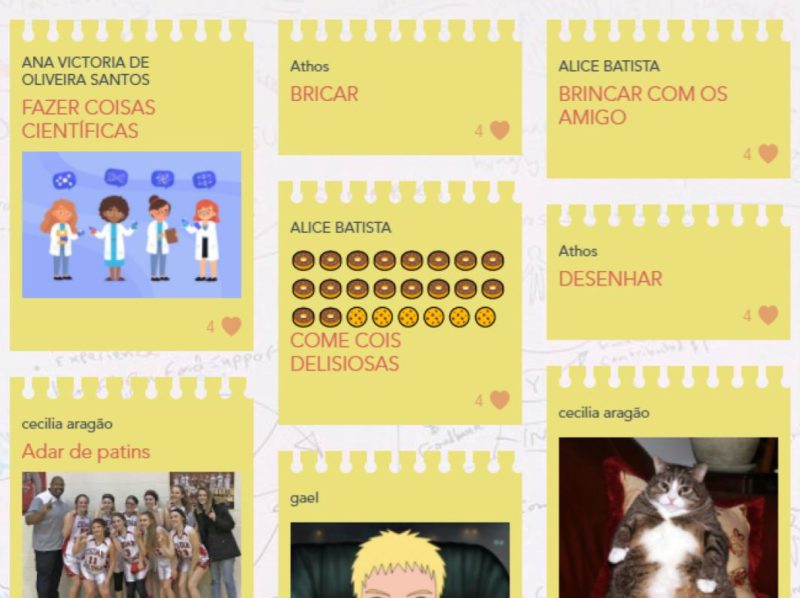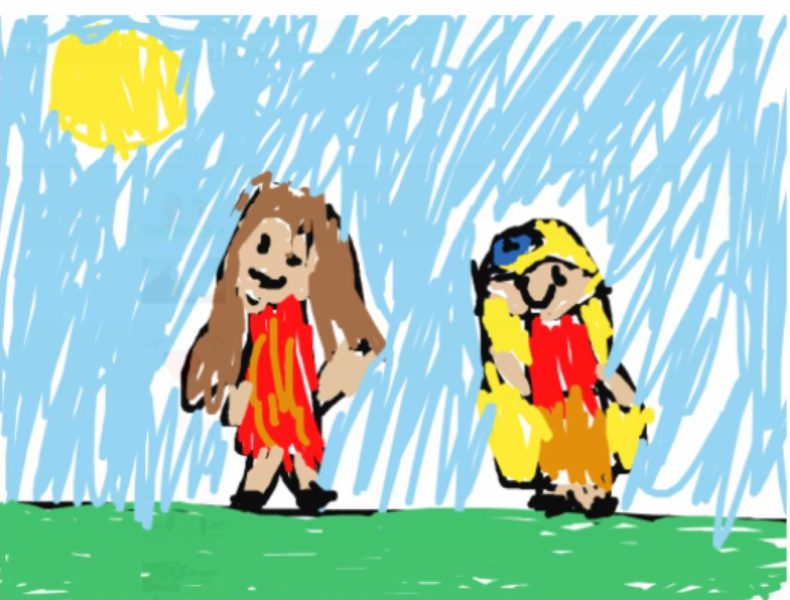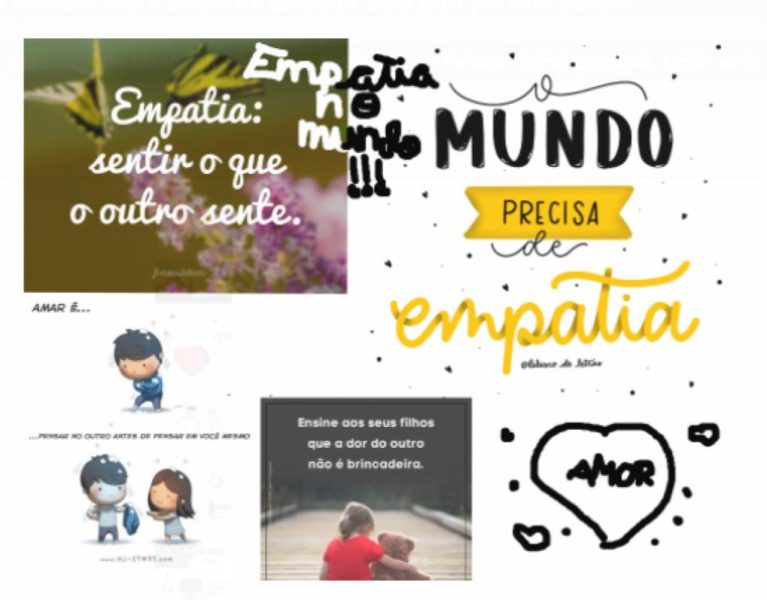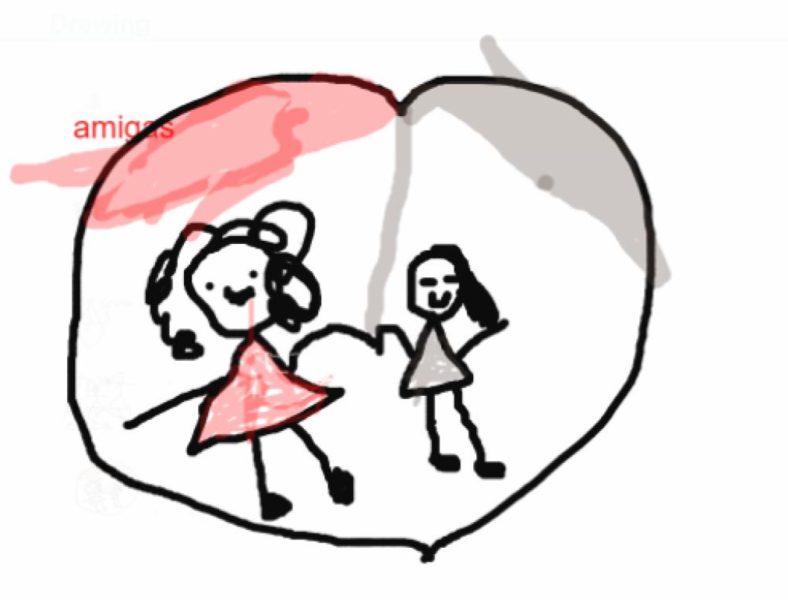The importance of our virtual village for the social-emotional reception of learners during social isolation
How important was the Guidance Counselor support to the learners during the pandemic?
General topic of interest
One way to support students to develop social-emotional skills is teaching them to recognize and identify emotions. Since all emotions are necessary, the students could learn that there are no “good” or “bad” emotions, they come and go in different levels. There are good and bad ways of expressing emotions.
The role of the Guidance Counselor is to help students learn to welcome and validate the emotions and learn to manage stress through tools that aim at self-knowledge, empathy and respect for differences.
The social isolation due to the pandemic made students experience emotions that became more intense.
During the meetings with the guidance counselor, the students could talk about how they were feeling, be listened and build and share strategies to deal with. What the students shared most was sadness, fear, joy and gratitude (for being protected) for the context in which they lived.
The approach of our socio-emotional work with students aims to validate emotions, naming them and always looking for new tools to learn how to manage them in order to maintain socio-emotional balance in a time of pandemic.
In this way, we conducted activities in "small groups" of conversation, mindfulness and individual assistance with students in this process of self-knowledge.
Participants
Students from Lower and Middle School.
Data collecting approach
Observation of student behavior during online classes;
Discussion with students;
Collaborative board in which students could share their strategies to deal with different emotions;
Virtual meetings with students that fostered active participation and dialogue. The meetings could be by series or by subgroups of the same series;
Drawings;
Moments of Mindfulness.
Data collecting example
MEETINGS
by Google Meet video Conferencing
DIGITAL DRAWING
On Nearpod
PAPER
to draw
COLLABORATIVE BOARD
On Nearpod
Emerging results
Collaborative Boards, Drawings and Videos:
- Knowledge about socio-emotional aspects.
- Knowledge about Mindfulness
- Engagement against Cyberbullying
- Knowledge about moral development practices
Reflections
We have learned that our students could develop their commitment to being an active part in problem solving related to socio-emotional issues. We also have learned that we are an inspiration and an example for our students who seek shelter and socio-emotional security at different stages of development. We are educators of human beings who need support and space at school to know and strengthen themselves in the face of life's challenges.
Next steps
Continue to have moments with subgroups of students to involve them in building strategies to deal with challenges.
Continue to support the student to learn how to solve problems and resolve conflicts.
Support students in developing habits of the mind.
Contribute so that the student is aware that he is an active being in society, working on his leadership skills and building life purpose.




